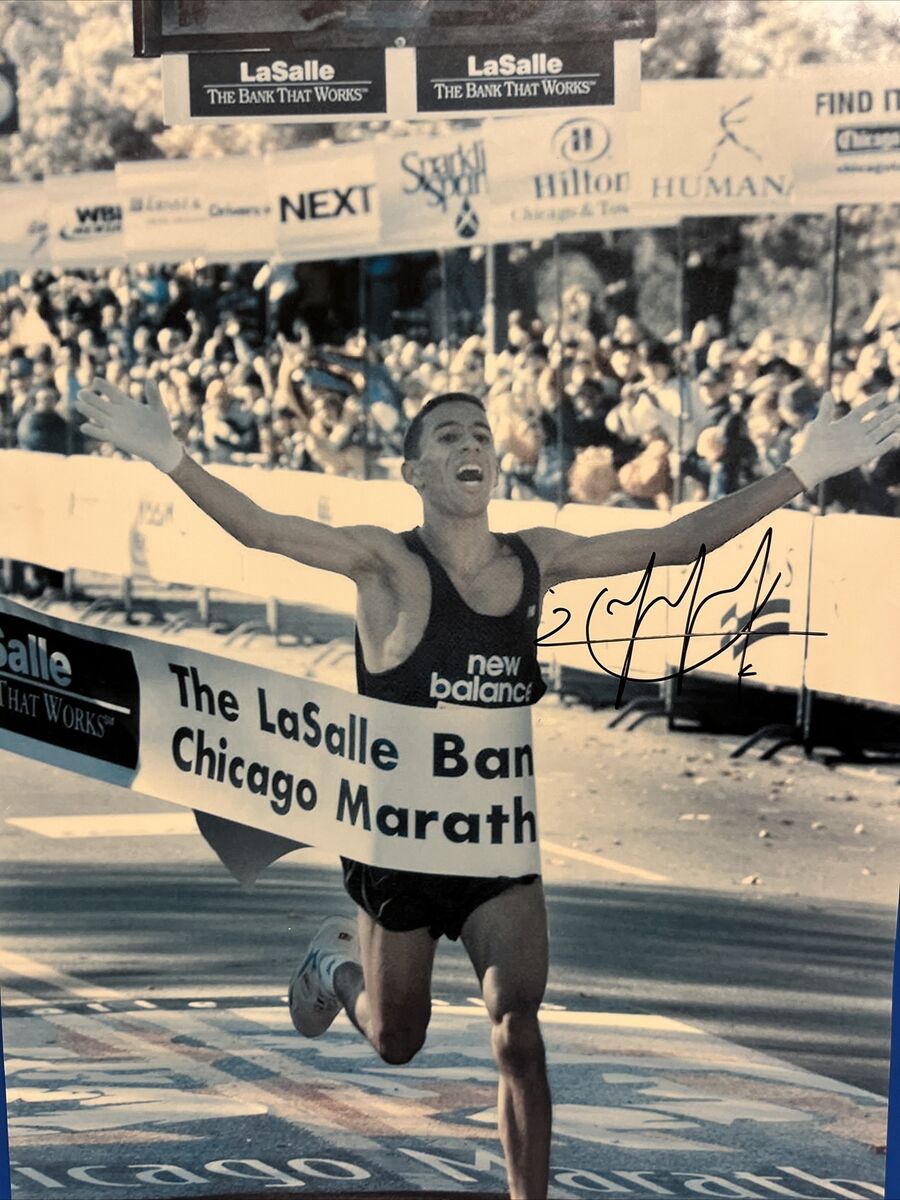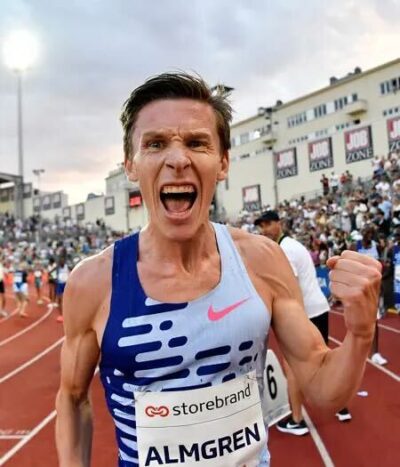Khalid is one of the most famous marathon runners in the world, held the world record from 1999 to 2003, and is still the American record holder. He won the London marathon once and the Chicago marathon 4 times. Since his retirement in 2012 he’s been working as an elite coach and Ambassador for events like the Bank of America Chicago Marathon. Recently he partnered with svexa to be the human performance company’s first elite coach ‘Seidur’. Imagine that you can get access to one of the best coaches in the world directly on your phone?!
Ahead of today’s Chicago marathon, he answered a few questions about his involvement…
Q: How did you hear about svexa?
A: Throughout my career in running, I stayed up to date with the latest advances in training. Obviously there have been great improvements in wearables like sports watches, faster shoes, changing how runners and coaches work together. A mutual contact introduced me to Mikael, the CEO of svexa – a company making rapid advances in delivering insights and recommendations for running.
Q: Why were you interested?
A: Talking to the svexa team I quickly realized that they are addressing one of the major issues facing runners, and athletes in general – that it’s very easy to gather lots and lots of data, but much harder to know what to do with it. I was impressed by svexa’s technology that brings together all sorts of different training data, and boils it down to give you straightforward recommendations and training plans that are individual for each different runner. Their tech can also help athletes avoid injury and illness – as I am one of many runners who ultimately had to retire due to repeated injuries and pain, this also appealed to me.
Q: What was the impetus for the Seidur project?
A: I’ve been in contact with svexa for some time, and a few months back they launched their Ellida product for running. This allows runners to enter information about their individual profile and level of experience, connect their training devices like a Garmin or Polar watch, and set a specific target event. The Ellida AI generates really personalized, optimal training plans that adapt daily as you train. This was impressive enough, but the particular opportunity arose for me to get involved with the addition of the Seidur capability, which allows an athlete to request a training plan that mimics the style of a particular elite coach. Svexa asked me to be one of the first Seidurs, which means an athlete can ask Ellida for a plan in the style that I would recommend, as if I was right there coaching them in person. It’s an exciting opportunity for me to share my experience and philosophy with a much wider audience than I could reach directly.
Q: What are your unique perspectives on coaching?
A: I believe in tough hard long runs to prepare for the marathon, mixed with shorter intervals at high speed. I like to see a progression in the long runs leading up to 1 or 2 specific sessions a couple of weeks out from the actual marathon. I’m also a strong believer in progressive runs between the harder sessions, where I would start slow and increase throughout the session. To run some races as a step in the process towards a major goal is always a good idea.
Q: So how did you contribute your ideas to svexa?
A: Initially they got all my handwritten training logs leading up to the world record races. Then we discussed my thoughts on what makes a ‘Khannouchi’ training plan unique. We’ve had several follow-up interviews with Johan and Emil in svexa’s analytics team, so they could pick my brain in detail about what I expect from a training plan. Following each discussion, the svexa team went away and built, or tweaked, the ‘Khannouchi Seidur’, and tested it to see what plans it would produce. They shared those initial plans with me, and I gave feedback so they could fine tune the Ellida AI system until I was satisfied the plans really do match what I would suggest to each different athlete.
Q: What can athletes do with this Seidur?
With svexa’s tools like Ellida, athletes can get a better understanding of their personal training profile and request tailored training plans to help them achieve their goals. However, svexa doesn’t actually sell its plans directly to athletes – instead they are like the ‘Intel inside’ powering other sports technology providers and software. So athletes can look for the ‘powered by svexa’ brand to see where they can get these insights.
Q: How is it different from other AI coaches?
A: Svexa’s team can provide more technical details, but there are a few basic differences. The main one is that most training plans are neither adaptive nor really deeply personalized – they’ll provide fairly generic recommendations based on a few inputs. They almost never react to your actual training, and they probably only use one device or source for their information. Svexa is different – it uses all the available data from devices, apps, biology and so on, and because of that they have a much more detailed picture of you as an individual and their AI can provide much more personalized plans.
Thanks for joining us today Khalid, have fun in Chicago!



